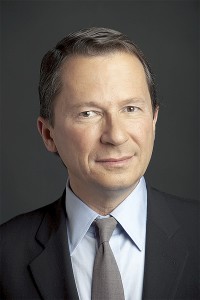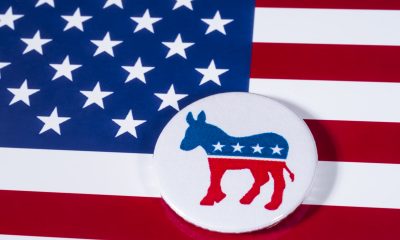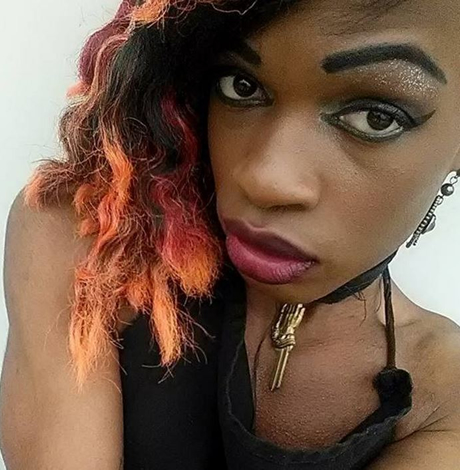National
Right-wing media watchdog project launched
Equality Matters created by gay ex-conservative David Brock

Former Clinton administration official Richard Socarides will head the newly created Equality Matters. (Photo courtesy Equality Matters)
Gay former conservative strategist and author David Brock, who changed sides in 2002 to become a champion of LGBT equality and progressive causes, announced the founding this week of a new initiative aimed at exposing “right-wing bigotry and homophobia wherever we find it.”
Brock said the new entity, Equality Matters, would be an arm of the progressive-leaning media watchdog group he founded in 2004 called Media Matters.
A statement released Monday says New York gay attorney and former Clinton administration official Richard Socarides would serve as president of Equality Matters. Lesbian journalist and Washington correspondent for The Advocate, Kerry Eleveld, was named editor of the project’s website, EqualityMatters.org, which organizers say will provide “news, opinion, and messaging” on LGBT-related issues in the media.
“Despite huge progress in gay rights in recent years, exemplified by the historic vote [on Dec. 18] finally striking down the ban on gay men and women from serving in the military, we are now living through a period of ferocious fundamentalism in the Republican Party and the conservative movement,” Brock said.
“Traditional conservatives and the Tea Party movement are united only in their contempt for equal rights for all Americans and a desire to return America to a 19th century idyll,” he said. “Equality Matters will not allow these latter-day ‘clerics’ to gain serious recognition by the media nor influence the policies that affect the lives of every American.”
A source familiar with Media Matters said the group and an affiliated entity, Media Matters Action network, raised about $23 million in 2010 in cash contributions and “long term commitments for 2011 and 2012.”
The New York Times reported that much of Media Matters’ funding comes from large contributions by wealthy liberal donors, including gay philanthropists.
The Blade source, who spoke on condition of not being identified, said the two entities yielded between $13 million and $14 in revenue this year. The 2010 figure disclosed by the source represents a significant boost in Media Matters’ revenue of $6.7 million in 2009 and $8.09 million raised in 2008, according to reports the group filed with the IRS in 2008 and 2009.
Socarides told the Blade Tuesday that Equality Matters would not have a separate budget and instead would operate under the Media Matters budget. He said Equality Matters, which would be based in the same offices as Media Matters at 455 Massachusetts Ave., N.W., would operate initially with a six-person staff, including him and Eleveld.
“We will draw on the Media Matters staff extensively,” he said. “And there are just under 100 people who work there. So we’ll have six people dedicated to just this and then parts of 95 others.”
According to Socarides, Equality Matters will not be involved in direct lobbying and won’t make campaign contributions – unlike existing LGBT groups like the Human Rights Campaign and the National Gay & Lesbian Task Force.
“Much like Media Matters already does on a broad range of issues, we will do news and information media monitoring,” he said. “And we’ll be a rapid response to any homophobic misinformation in the media or in political discourse. So part of our mission is to respond rapidly with smart and accurate information when the right wing – be it in media or politics – puts out misinformation.”
At least two activists involved with national LGBT groups said the launching of Equality Matters would likely trigger speculation among LGBT movement insiders about whether Brock and Socarides were seeking to step into the realm of other national LGBT groups that came under some criticism in the past year.
Expectations were high in January 2009 for significant progress on LGBT-related legislation as President Obama entered the White House and Democrats were in control of Congress, the two activists said. Although Congress passed an important hate crimes law last year with protections for LGBT people and last week repealed “Don’t Ask, Don’t Tell,” all other important bills remain stalled in committee. Among them is the Employment Non-Discrimination Act, or ENDA, which calls for banning employment discrimination based on sexual orientation and gender identity.
“The feeling among some of us is the established groups could have done more and could have put more pressure on the Democrats to do more,” said one of the activists.
But others, including gay U.S. Rep. Barney Frank (D-Mass.), considered one of the leading advocates for LGBT rights in Congress, have said there were not enough LGBT-supportive votes in Congress to advance the other bills. Frank has said it is up to LGBT advocates to do the lobbying and advocacy work in the sections of the country, especially the so-called “red states,” where members of Congress oppose LGBT equality and won’t vote for pro-gay bills.
Socarides said he sees Equality Matters as a new force that will work with the existing groups, including the Human Rights Campaign and Gay & Lesbian Alliance Against Defamation (GLAAD), which also specializes in media-related initiatives.
One gay activist, who spoke on condition of anonymity, questioned whether Equality Matters would be replicating the work of existing groups.
“Media Matters is fantastic at pushing back at conservative disinformation, and if they’re ramping up that function in the gay space, God bless,” the activist said. “But if they’re doing policy advocacy, plenty of people with vastly more substantive experience than Socarides are doing that pretty well, as the passage of DADT suggests. It’s not clear this isn’t a completely redundant vanity project, but I guess we’ll see.”
GLAAD, which has a budget of $7.95 million and a 48-member staff located in New York and Los Angeles, focuses on the positive portrayal of LGBT people in the media and in entertainment, according to its president, Jarrett Barrios.
“GLAAD fights defamation in the media from major outlets to small markets around the country,” Barrios said. “Some of GLAAD’s most visible work is in Hollywood, but much of our work is with journalists and news organizations to ensure accurate and responsible coverage of LGBT peoples’ lives and the issues that affect them.”
He said that unlike Equality Matters’ stated objective, GLAAD steers clear of addressing specific political and policy-making issues.
“I think our effort will be complimentary rather than overlapping with GLAAD,” said Socarides. “And in fact one of our core missions at Media Matters and at Equality Matters is to help other progressive and LGBT rights organizations fulfill their own missions.”
Now that “Don’t Ask, Don’t Tell” has been addressed legislatively, Socarides said Equality Matters plans to devote much of its resources to promoting same-sex marriage equality, both on the national and state level. He said the group would jump into the media fray as ballot measures seeking to ban same-sex marriage surface in the states.
He said Equality Matters would also push to advance legislation stalled in Congress to overturn the Defense of Marriage Act, which defines marriage under federal law as a union only between a man and a woman and bars all federal programs – including Social Security benefits – for same-sex married couples.
“Despite our best efforts over the years to stiffen the spines of progressives in the face of unrelenting smears from the Republican attack machine, fearful progressives continue to cede the political field to right-wingers who are waging war against core American values,” Brock said in a statement. “We need to do more. Our new communication war room for gay equality, Equality Matters, will expose right-wing bigotry and homophobia wherever we find it, show that the real political vulnerability on these issues belongs to the GOP, provide desperately needed ballast in the media, and trigger progressive passion – so that our political leaders act on their convictions and fight for them,” he said.
New York
Pride flag raised at Stonewall after National Park Service took it down
‘Our flag represents dignity and human rights’

A Pride flag was raised at the site of the Stonewall National Monument days after a National Park Service directive banned flying the flag at the birthplace of the LGBTQ rights movement in the U.S.
The flag-raising was led by Manhattan Borough President Brad Hoylman-Sigal and supported by other elected officials.
“The community should rejoice. We have prevailed,” Hoylman-Sigal said shortly after the flag was hoisted. “Our flag represents dignity and human rights.”
The flag now sits in Christopher Street Park, feet away from the Stonewall Inn, where in 1969 a police raid of the gay bar sparked outrage and led to a rising of LGBTQ people pushing back on NYPD brutality and unjust treatment.
Elected officials brought a new flagpole with them, using plastic zip ties to attach it to the existing pole.
In 2016, President Barack Obama declared the site a national monument.
One day before the planned re-raising of the Pride flag, the National Park Service installed only an American flag on the flagpole, which days prior had flown a rainbow flag bearing the NPS logo.
The directive removing the flag was put forward by Trump-appointed National Park Service Acting Director Jessica Bowron.
This comes one day after more than 20 LGBTQ organizations from across the country co-signed a letter to Interior Secretary Doug Burgum and General Services Administrator Ed Forst, demanding the flag be restored to the monument.
“It is our understanding that the policy provides limited exceptions for non-agency flags that provide historical context or play a role in historic reenactments. Simply put, we urge you to grant this flag an exception and raise it once again, immediately,” the letter read. “It also serves as an important reminder to the 30+ million LGBTQ+ Americans, who continue to face disproportionate threats to our lives and our liberty, that the sites and symbols that tell our stories are worth honoring … However, given recent removals of the site’s references to transgender and bisexual people — people who irrefutably played a pivotal role in this history — it is clear that this is not about the preservation of the historical record.”
The letter finished with a message of resilience the LGBTQ community is known for: “The history and the legacy of Stonewall must live on. Our community cannot simply be erased with the removal of a flag. We will continue to stand up and fight to ensure that LGBTQ+ history should not only be protected — it should be celebrated as a milestone in American resilience and progress.”
When asked about the directive, the NPS responded with this statement:
“Current Department of the Interior policy provides that the National Park Service may only fly the U.S. flag, Department of the Interior flags, and the Prisoner of War/Missing in Action flag on flagpoles and public display points. The policy allows limited exceptions, permitting non-agency flags when they serve an official purpose. These include historical context or reenactments, current military branch flags, flags of federally recognized tribal nations affiliated with a park, flags at sites co-managed with other federal, state, or municipal partners, flags required for international park designations, and flags displayed under agreements with U.S. Citizenship and Immigration Services for Naturalization ceremonies.”
An Interior Department spokesperson on Thursday called the move to return the flag to the monument a “political stunt.”
“Today’s political pageantry shows how utterly incompetent and misaligned the New York City officials are with the problems their city is facing,” a department spokesperson said when reached for comment.
The clash comes amid broader efforts by the Trump-Vance administration to minimize LGBTQ history and political power. The White House has spent much of President Donald Trump’s second presidency restricting transgender rights — stopping gender-affirming care for transgender youth, issuing an executive order stating the federal government will recognize only two sexes, male and female, and blocking Medicaid and Medicare from being used for gender-affirming care.
State Department
FOIA lawsuit filed against State Department for PEPFAR records
Council for Global Equality, Physicians for Human Rights seeking data, documents

The Council for Global Equality and Physicians for Human Rights have filed a Freedom of Information Act lawsuit against the State Department for PEPFAR-related data and documents.
The groups, which Democracy Forward represents, filed the lawsuit in U.S. District Court for the Southern District of New York on Wednesday.
Then-President George W. Bush in 2003 signed legislation that created PEPFAR. UNAIDS Executive Director Winnie Byanyima last March said PEPFAR has saved 26 million lives around the world.
The Trump-Vance administration in January 2025 froze nearly all U.S. foreign aid spending for at least 90 days. Secretary of State Marco Rubio later issued a waiver that allowed PEPFAR and other “life-saving humanitarian assistance” programs to continue to operate during the freeze.
The Washington Blade has previously reported PEPFAR-funded programs in Kenya and other African countries have been forced to suspend services and even shut down because of gaps in U.S. funding. HIV/AIDS activists have also sharply criticized the Trump-Vance administration over reported plans it will not fully fund PEPFAR in the current fiscal year.
The lawsuit notes the Council for Global Equality and Physicians for Human Rights have “filed several FOIA requests” with the State Department for PEPFAR-related data and documents. The groups filed their most recent request on Jan. 30.
“On Jan. 30, 2026, plaintiffs, through counsel, sent State a letter asking it to commit to prompt production of the requested records,” reads the lawsuit. “State responded that the request was being processed but did not commit to any timeline for production.”
“Plaintiffs have received no subsequent communication from State regarding this FOIA request,” it notes.
“Transparency and inclusion have been hallmarks of PEPFAR’s success in the last decade,” said Beirne Roose-Snyder, a senior policy fellow at the Council for Global Equality, in a press release that announced the lawsuit. “This unprecedented withholding of data, and concurrent ideological misdirection of foreign assistance to exclude LGBTQI+ people and others who need inclusive programming, has potentially devastating and asymmetrical impacts on already marginalized communities.”
“This data is vital to understanding who’s getting access to care and who’s being left behind,” added Roose-Snyder.
“We filed this lawsuit to seek transparency: the administration’s PEPFAR data blackout withholds information the public, health providers, and affected communities need to track the HIV epidemic and prevent avoidable illness and death, obscuring the true human cost of these policy decisions,” said Physicians for Human Rights Research, Legal, and Advocacy Director Payal Shah.
The State Department has yet to respond to the Blade’s request for comment on the lawsuit.
New York
N.Y. lawmaker vows ‘Pride flag will fly again’ at Stonewall Monument
After a Jan. 21 policy shift, Pride flags were banned at national parks, prompting backlash from Bottcher and LGBTQ advocates.

Hours after news broke that the National Park Service would no longer allow Pride flags to fly at the Stonewall National Monument — the birthplace of the modern LGBTQ rights movement in the United States — the Washington Blade spoke with New York State Sen. Erik Bottcher, who represents the area surrounding the Stonewall Inn and the national monument.
During the interview, Bottcher, who is gay, spoke about the policy change and outlined steps he plans to take in the coming days to push for its reversal.
“This is another act of erasure,” Bottcher told the Blade. “It’s a cowardly attempt to rewrite history and to intimidate our community. This is Stonewall — it’s where we fought back, where we ignited a global movement for equality — and we refuse to go back. We’re not going to accept these acts of erasure.”
The Stonewall Inn became a flashpoint in 1969 after NYPD officers raided the bar, part of a longstanding pattern of police harassment of LGBTQ spaces. The raid sparked days of protest and resistance along Christopher Street, now widely recognized as the catalyst for the modern LGBTQ rights movement.
While the events are often referred to as the “Stonewall Riots,” many activists and historians prefer the term “Stonewall Uprising,” emphasizing that the resistance was a response to systemic oppression rather than senseless violence. LGBTQ patrons and community members fought back — shouting “Gay Power!” and “Liberate Christopher Street!” — as crowds grew and frustration with police abuse boiled over.
Since the uprising, LGBTQ people and allies have gathered annually in June to commemorate Stonewall and to celebrate Pride, honoring the movement that placed LGBTQ voices at the center of the fight for equality.
In June 2016, then President Barack Obama officially designated the space as the Stonewall National Monument, making it the United States’s first national monument designated for an LGBTQ historic site.
Now, nearly 10 years later, President Trump’s appointed NPS acting director Jessica Bowron changed policy on Jan. 21 regarding which flags are allowed to be flown in national parks. Many, including Bottcher, say this is part of a larger targeted and deliberate attempt by the administration to erase LGBTQ history.
“It’s clear they’re making a conscious decision to erase the symbols of our community from a monument to our community’s struggle,” he said. “This is a calculated and premeditated decision, and it could be — and should be — reversed.”
“Let’s be clear,” Bottcher added, “they wish we didn’t exist … But we’re not going anywhere. We refuse to go back into the shadows.”
When asked why it is critical to challenge the policy, Bottcher emphasized the importance of visibility in preserving LGBTQ history.
“This is why it’s so important that we not let this stand,” he said. “Visibility is critical. When people see us, learn about us, and get to know us, that’s how we break down prejudice and stereotypes. We cannot allow them to push us back into the shadows.”
Other LGBTQ leaders and elected officials were quick to condemn the removal of the Pride flag, which had flown since the site’s official designation as a national monument.
New York City Mayor Zohran Mamdani called the decision “outrageous.”
“I am outraged by the removal of the Rainbow Pride Flag from Stonewall National Monument,” Mamdani said in a statement. “New York is the birthplace of the modern LGBTQ+ rights movement, and no act of erasure will ever change or silence that history.”
“Our city has a duty not just to honor this legacy, but to live up to it,” he added. “I will always fight for a New York City that invests in our LGBTQ+ community, defends their dignity, and protects every one of our neighbors — without exception.”
Senate Minority Leader Chuck Schumer also condemned the move.
“The removal of the Pride Rainbow Flag from the Stonewall National Monument is a deeply outrageous action that must be reversed immediately,” Schumer said in a statement to The Advocate. “Stonewall is a landmark because it is the birthplace of the modern LGBTQ rights movement, and symbols of that legacy belong there by both history and principle.”
Cathy Renna, communications director for the National LGBTQ Task Force, said the flag’s removal will not erase the movement it represents.
“They can take down a flag, but they can’t take down our history,” Renna said. “Stonewall is sacred ground rooted in resistance, liberation, and the legacy of trans and queer trailblazers who changed the course of history.”
Human Rights Campaign National Press Secretary Brandon Wolf echoed that sentiment.
“Bad news for the Trump administration: these colors don’t run,” Wolf said. “The Stonewall Inn and Visitors Center are privately owned, their flags are still flying high, and that community is just as queer today as it was yesterday.”
Tyler Hack, executive director of the Christopher Street Project, said the removal was aimed squarely at LGBTQ visibility.
“The Pride flag was removed from Stonewall for one reason: to further erase queer and trans people from public life,” Hack said. “Stonewall marks the moment when queer and trans people fought back and demanded dignity. Our history is not theirs to erase.”
Bottcher closed with a promise to his constituents — and to the broader LGBTQ community — that the Pride flag’s removal would not be permanent.
“We will not be erased. We will not be silenced,” he said. “And the Pride flag will fly again at the birthplace of our movement.”


















